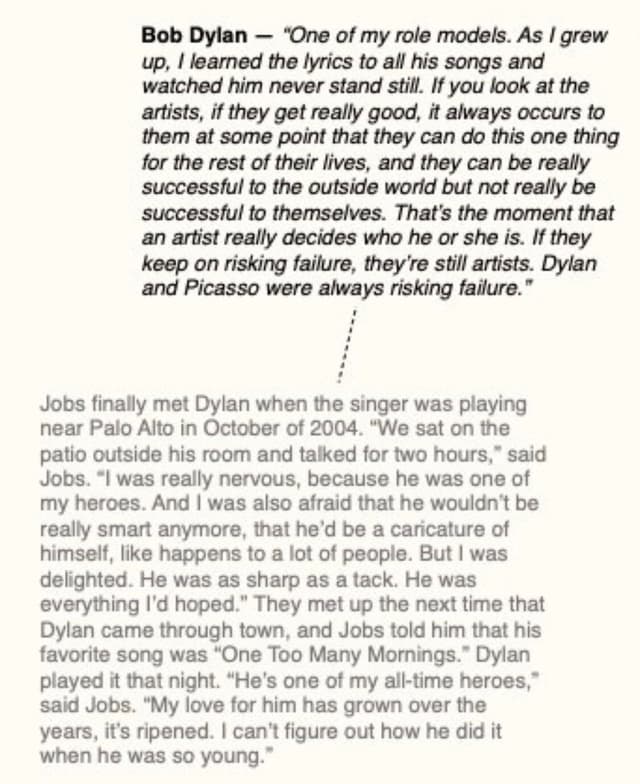🧵 View Thread
🧵 Thread (15 tweets)

it's quite common for people who succeed at something to kinda handwave over the part that they didn't have trouble with, that everyone else struggles with. today i want to talk about Alan Watts' “What Would You Like To Do If Money Were No Object?”

first lemme post the transcript, it's fairly short, you can look up the audio on youtube too a summary might be something like do what you love → get good → get paid and Alan kinda casually drops "you'll be able to get a good fee... you'll find the others" – non-trivial! https://t.co/DkbjswXJSC


now, if you wanna really understand what someone is saying, don't just listen to what they say, go and study what they actually did. in Alan's case, he solved for distribution + got good at his sermons via volunteer radio https://t.co/yJrNTCwBFd

I wanted to write this thread last night when I encountered an interview with a local success coach who said "do what you love → become the best at it" he uses Gordon Ramsay as an eg. I'm sure Ramsay is a very good chef, but I doubt he's the best. what he is? the best marketer https://t.co/DzVYIfTfdn


if you have a nuanced eye and an understanding of product-market fit, etc, you might read a sentence like "go be the best illustrator out there" and automatically translate that to "drill down to being the best illustrator in a particular niche" but not everyone knows that

the Dilbert guy figured this out and it's why he gets to be a rich mf talking shit. he's not the best comic artist. he's not the best joke-teller. he's just good enough at each. product-market fit is how you get paid, and getting paid funds your training https://t.co/1v118AuUb9

wait now this sounds like i'm subtweeting smart-hot girls lmfao but this applies in everything the guy who makes dilbert isn't that great at comics drawing, or writing jokes, but he found his niche, articulated his vector, and people literally tell him what to write/make

most people never really get outlier-successful in the product-market fit sense that I'm describing but once you get market success – you'll then have to deal with a new challenge, which is being true to yourself and your creative vision, despite success https://t.co/acYvDPd5Nu

I agree with Alan, btw, that you should do what you love and get good at it. Here's my frame: https://t.co/pTVSuN8OCN

Mark succeeded tremendously in the traditional sense, but look at him. look at his eyebrows. I don't think he's happy. i hope i'm wrong, Mark... https://t.co/QHO9lGtC2e

this has been haunting me for months… nobody in the comments is picking up on it https://t.co/qY29pwU0rs



but anyway circling back so my frame is something like - do what you love - seek out other people who also do what you love - practice good reply game, build relationships, cultivate a supportive/nourishing environment to practice your work in few people git gud in isolation

even reclusive authors etc tend to have some supportive friend who encourages them to publish https://t.co/vWiQwS5amV

Mersenne was one of Galileo's most ardent supporters and he insisted that Galileo publish his work outside Italy Mersenne himself did some math – Mersenne prime numbers (Mn = 2^n − 1) are named after him – but his correspondence & distribution was his real contribution https://t.co/9Nb1tWhZTF


oversimplifying, but I'll say it: the difference between van gogh (died penniless) and picasso (died rich) was that picasso had a friendly ambitious nerd in his corner: gertrude stein https://t.co/tMoeebUcMi

Who attended her salons? Some of her guests that you might recognize are: Pablo Picasso, Ernest Hemingway, F. Scott Fitzgerald, Sinclar Lewis, Ezra Pound, Sherwood Anderson and Henri Matisse. Here's Gertrude in her Paris studio, with portrait of her that was painted by Picasso https://t.co/4oJH9F99qT


